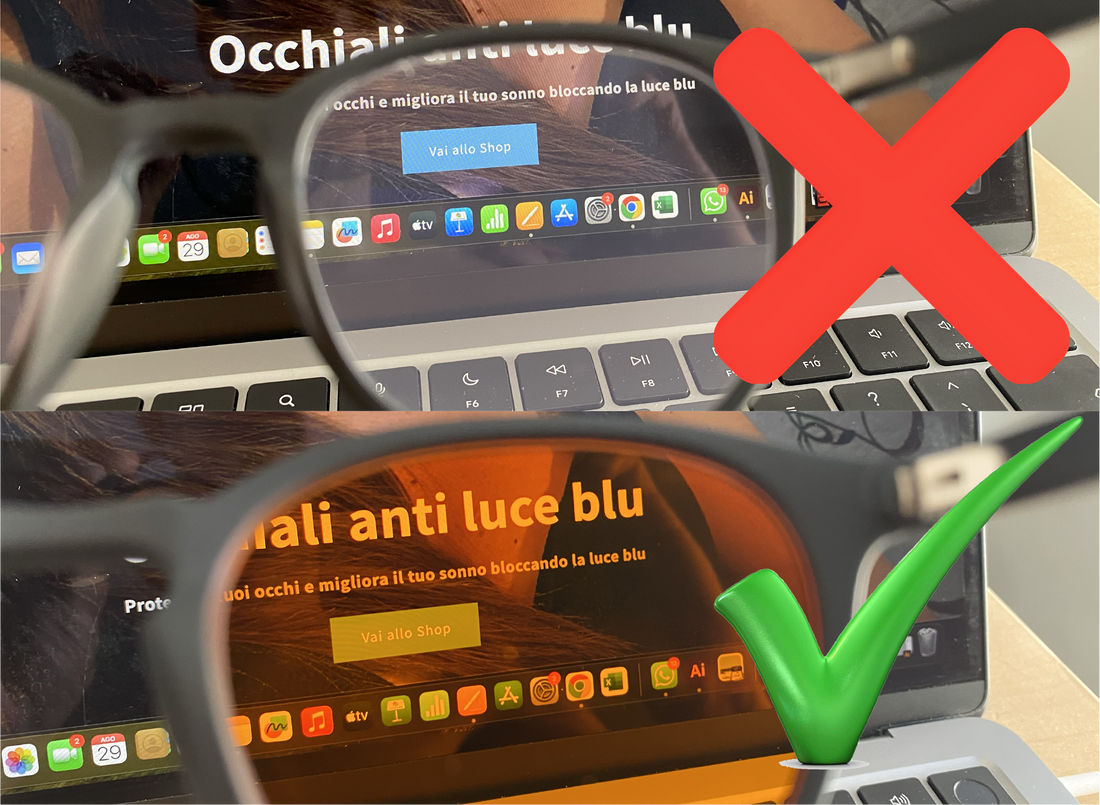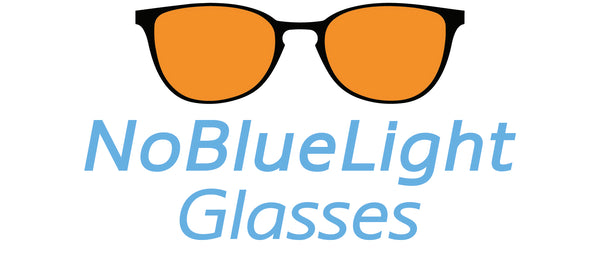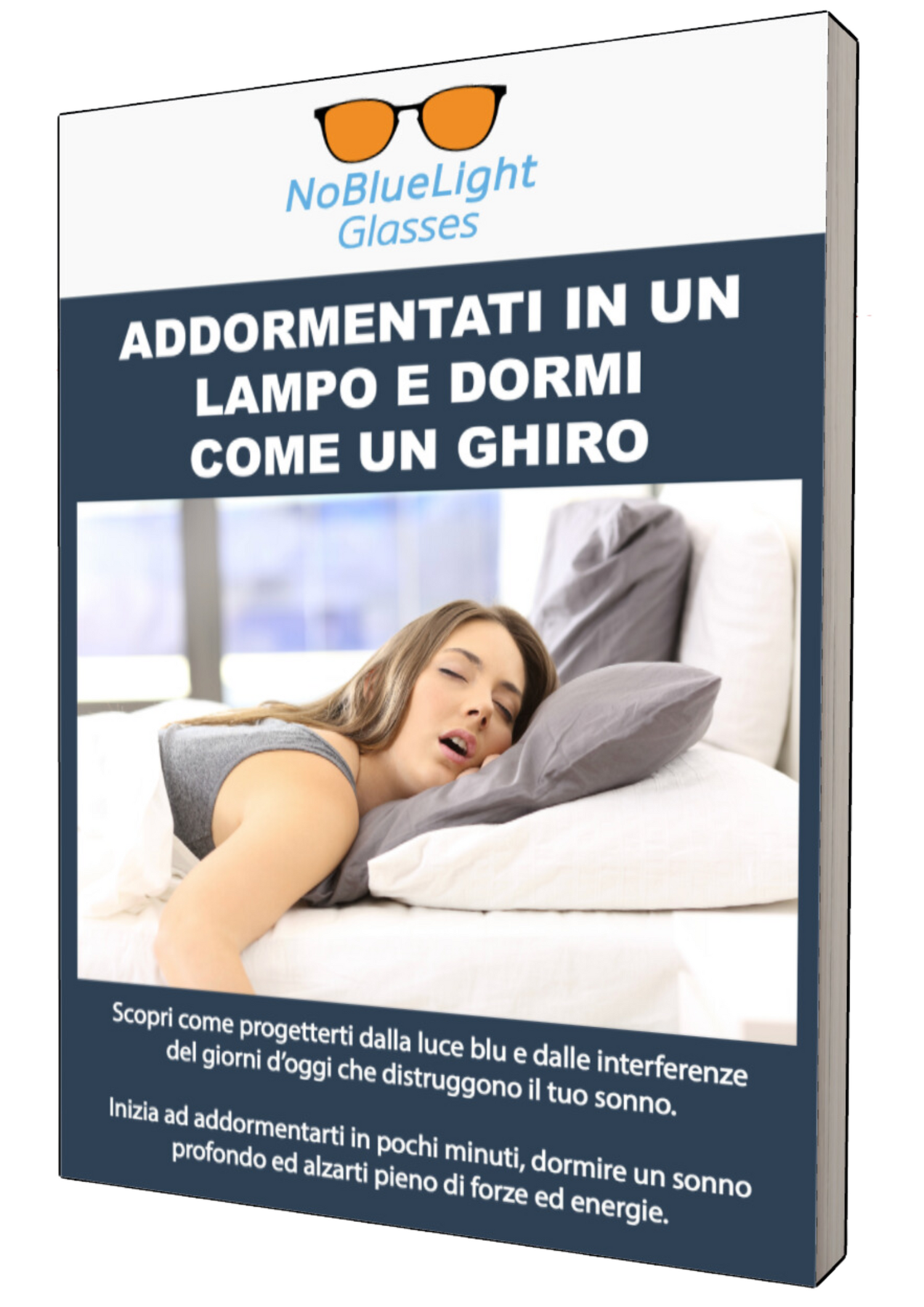
Blue anti -light glasses: don't buy them!
Share
If you're looking for blue light filter glasses, there's something you should know…
There are many blue light blocking glasses… with clear lenses.
Looking through their clear lenses, you can clearly see the blue color.
So I ask you… How is it possible that these glasses block blue light, when blue is visible when looking through their lenses?
Unfortunately, these lenses only block a very small percentage of blue light…
In fact, in order to be blocked, blue light must not be perceived by our eyes.
Let me explain better…
Light is made up of a spectrum of many colors, commonly known as the colors of the rainbow.

These colors are not visible individually unless under special conditions, such as in a rainbow.
All these colors come together to form light, forming the light spectrum.
What changes is their percentage within the light spectrum.
As for the light emitted by the sun, the composition of its light changes throughout the day.
Let's see how…
Below you can see the percentages of colors that make up sunlight at midday.

Below you can see the percentage of colors that make up sunlight in the evening.

As you can see, the amount of each individual color changes.
The biggest difference is that Cool colors like blue are present in large quantities during the central hours of the day and disappear almost completely in the evening.
This changes the hue of the light spectrum as you can see in the photo taken below at different times of the day.

Around noon the light is strong and clear.
In the evening, however, the light is warm and less intense.
Now I ask you… wearing blue light blocking glasses with clear lenses… does the shade of light you see change?
Unfortunately the answer is no, as you can see from this photo taken through a pair of blue light blocking glasses…

Sometimes you get a slight change in your perception of light through clear blue light blocking lenses…
This change in perception is minimal as the amount of blue light that is blocked by these glasses is so small!
This is why blue light blocking glasses don’t actually block blue light, unless…
There is a fundamental requirement to understand if a pair of glasses actually block blue light…
This requirement is that its lenses are orange in color.
Although this While it may not be a guarantee of actual blue light blocking as we will see shortly, it is still a fundamental requirement.
In fact, there is no pair of glasses that blocks high percentages of blue light (at least 80/90%) that has transparent lenses (these block at best about 15/20%).
Before we look at how to tell if orange-lensed glasses actually block blue light, let’s look at why it’s important to block blue light and when to do so.
You may already know the importance of blocking blue light.
If you want to learn more about why it is essential to block blue light in the evening, you can find an article on our blog at this link.
Resuming what was said in the article, Blue light has always been absent in nature after sunset.
And this for a very specific reason for us!
The blue light emitted by the sun during the day tells our brain to keep us awake and active. This blocks the production of melatonin, the sleep hormone.
Precisely for this reason, When our brain detects the lack of blue light in the evening, it starts to make us relax and produce melatonin.
This hormone, within a few hours, will induce us to sleep and will make us sleep a deep and regenerating sleep (or rather, it made us sleep).
In fact, this whole natural balance of ours was overturned after the discovery of electricity...
With the discovery of electricity we have illuminated at night, also using blue light.
After the computer revolution and the introduction of computers and smartphones into our lives, we have further aggravated the situation.
Nowadays, we find ourselves bombarded with blue light in the evening, coming from LED bulbs, LED strips and electronic devices present in all our homes such as PCs, TVs and smartphones.

LED lighting and our electronic devices emit large amounts of blue light, which is dangerous for our eyes and our sleep.
Dangerous because, as we have seen a little while ago, When our brain detects blue light it blocks the production of melatonin, the sleep hormone.



